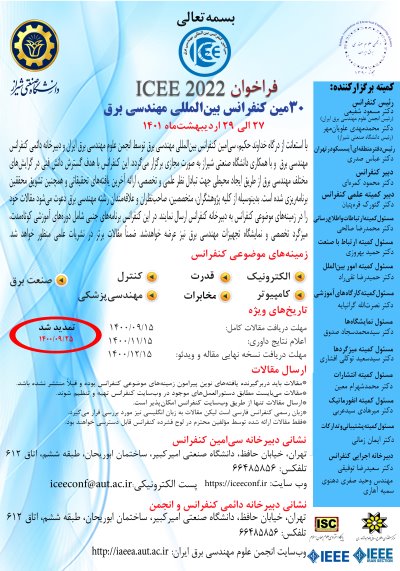0% Complete

نویسندگان :
کلمات کلیدی :
چکیده :
لیست مقالات بایگانی شده
Saeed Mousavi - Sara Ashrafi - Mehdi Delrobaei
Sepideh Jahani VakilKandi - Farhad Bayat - Abolfazl Jalilvand
Mohammad Saeed Zare Dehabadi - Mehran Jahed
Mehdi Mohammadi - Masoud Shafiee - Mahdi Mirshahi
Sara Mirzaie - Mohammadreza Avazaghaei - Omid Bushehrian
Fardin Hasanzad - Hassan Rastegar
Saeed Banaeian Far - Azadeh Imani Rad - Maryam Rajabzadeh Asaar
فاطمه سلطانی دزکی - حسین فلسفین
Amirhossein Tajik - Seyedali Samareh Taherinasab - Samad Sheikhaei
Amin Mihankhah - Ali Doustmohammadi




